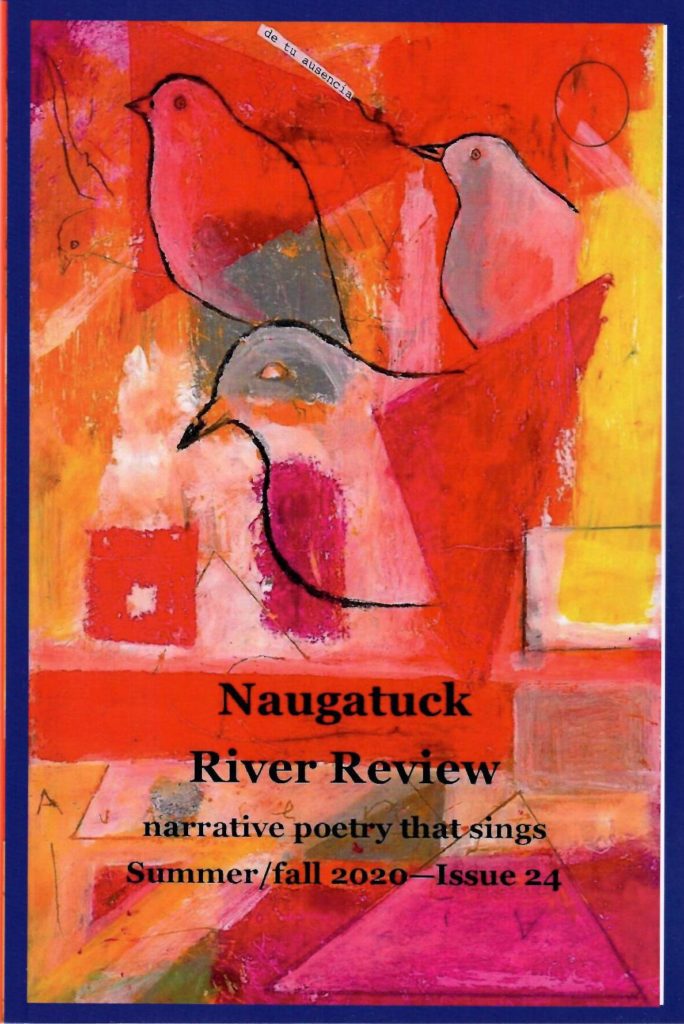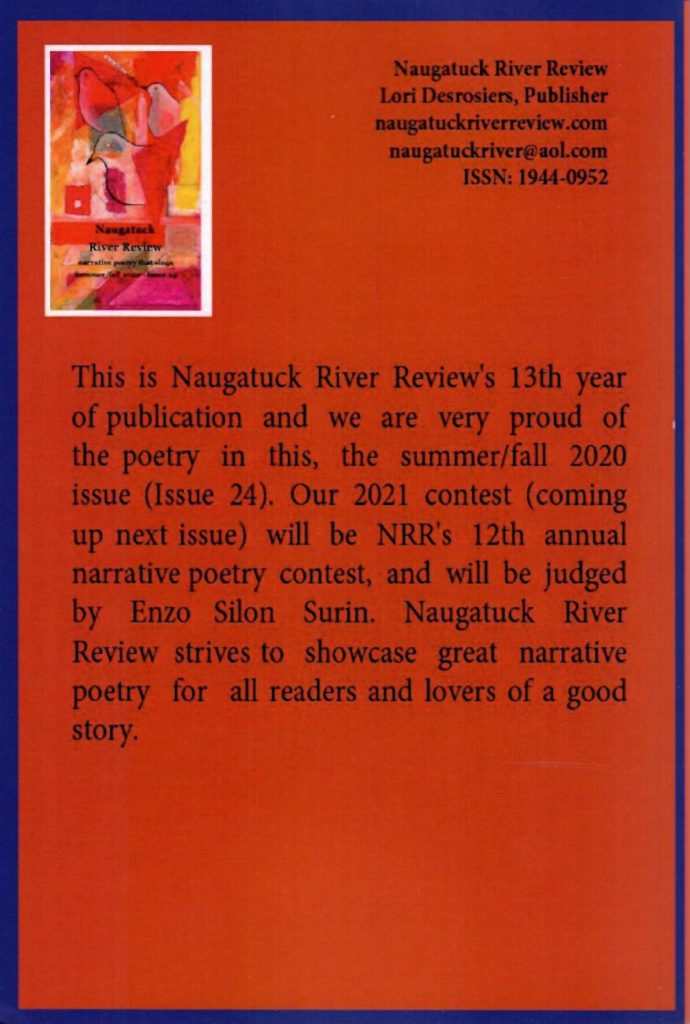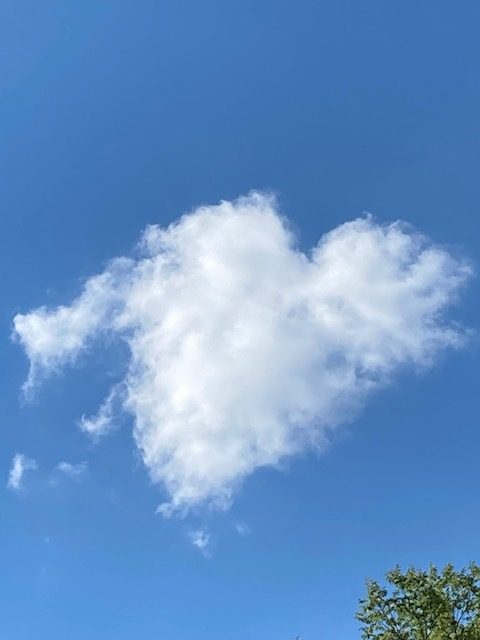
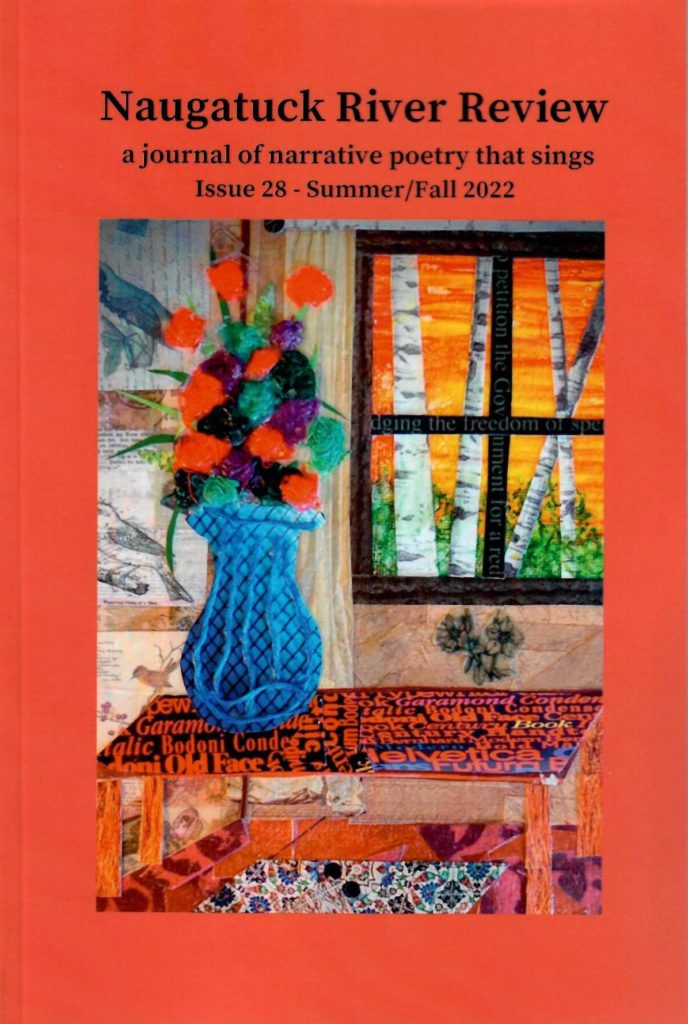
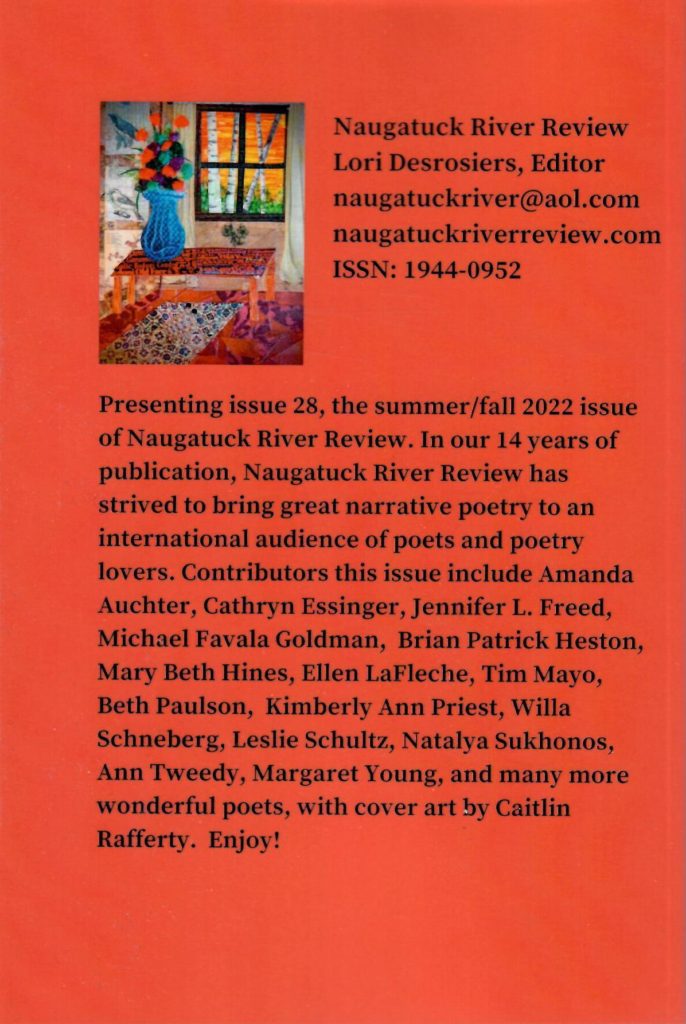
This week, the newest issue of Naugatuck River Review: A Journal of Narrative Poetry that Sings landed in my mail box!
I was immediately drawn to this cover art, a collage by Caitlin Rafferty of Foxboro, Massachusetts, called “Badinage.” I think of this word as meaning a kind of teasing repartee, sort of a Spencer-Tracy back-and-forth. At first, I thought the title of the piece referred to the fragments of text echoing the birch trees and table legs, a kind of conversation between trees, wood, and paper, perhaps. Then, when I read the about the other elements, where I expected to see “yarn” instead I read “embroidery thread.” Aha! The scale is smaller than I had realized–the whole piece only 10″ by 8″ and is even small than standard sheet of paper. This wit is actually a perfect objective correlative for the contents of this journal of narrative poetry, since each of the 62 poems by as many poets builds up an entire world within the miniature scale of a short poem.
As I write this, I am reflecting on the contents. I have read every one. All were skillful and made me think. Many, I know, are poems that I shall return to time and again. None were by poets already known to me. It was difficult to select only a few to call out, but I shall limit my spotlight to just six, less than 10 percent!
“Kalia” is by Roderick Bates of Vermont. It deftly draws the gentle exchange of world views between the speaker’s freshman roommate, a young Hindu man, and his mother, a proseltyzing Christian.
“The Stone Woman on the Seawall” by Texas poet Amanda Auchter gives eloquent voice to a sculpture memorializing the devastating hurricane that struck Galveston in 1900. The poem has added resonance due to our world’s accelerating extreme weather in 2022.
“You Were Skittish” by Lorraine Jeffery, a poet from Michigan, a poem about the connections and gulfs between humans and other animals, made me gasp and then tear up at its unexpected ending.
“Union Square” by Don Hogle, accomplished poet and dedicated traveler, holds a bittersweet image in its last lines that I don’t think I will ever forget.
“After Bishop” by Natalya Sukhonos, a poet and educator born in Odessa, Ukraine who grew up and currently lives in the United States. In this free-verse poem, Sukhonos alludes to and echos the elegaic mood of Elizabeth Bishop’s celebrated villanelle about loss, “One Art,” but makes the formal and personal landscapes all her own.
My favorite? If pushed to choose, I would go for “Reclaiming Your Inner Emily Dickinson” by Barbara Unger, recognizing my own rueful-joyful emotions regarding recent quarantine mandates. Ungar, an accomplished poet, translator, and teacher, gets the tone exactly right in this advice that speaks compellingly to my introverted nature.
I think that this issue of Naugatuck River Review is one in which the reader can safely and happily judge the book by its cover.
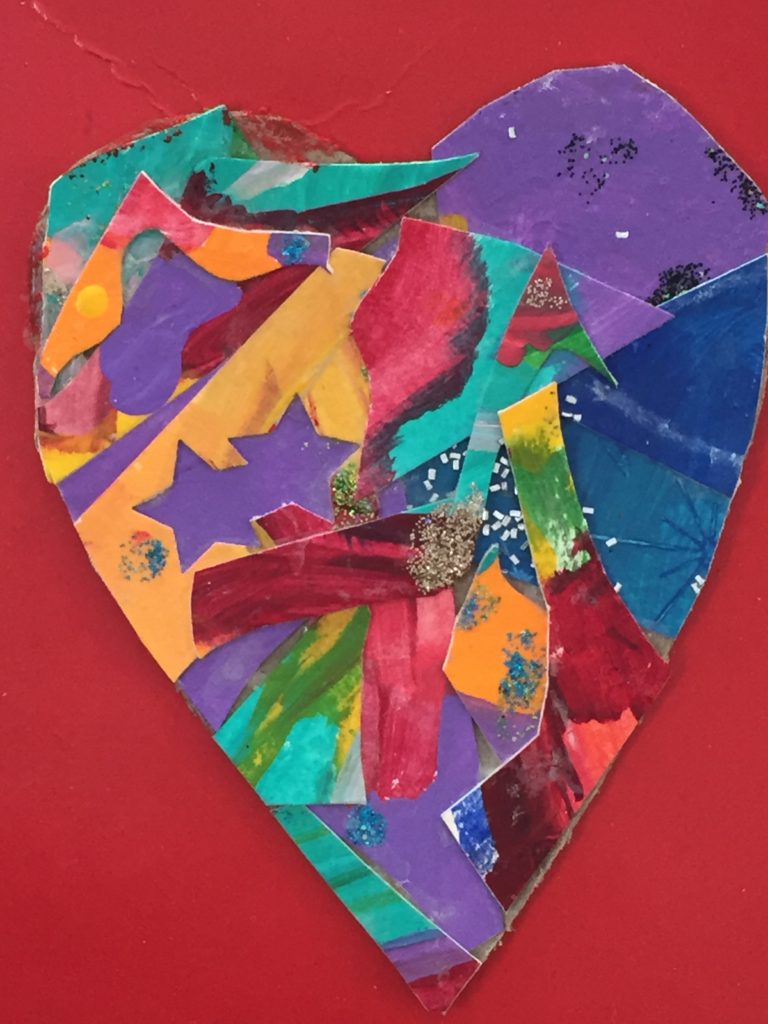
LESLIE

